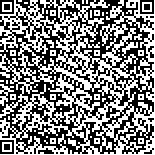| 摘要: |
| [摘要] 目的 探讨注意力缺陷多动障碍(ADHD)患儿品行与父母教养方式的关系。方法 选取2015-10~2016-05来广西壮族自治区人民医院儿童心理门诊就诊后确诊为ADHD的患儿56例,对照组为分层随机抽取的南宁市某小学在读的健康儿童74名。分别对两组儿童家长进行父母教养方式评价量表(EBMA)和Cornners父母问卷(PSQ)评估。结果 (1)ADHD患儿与对照组儿童在品行问题、冲动-多动和多动指数上存在显著差异(P<0.05)。(2)不同多动类型的ADHD儿童在儿童行为问卷各维度及总量表上无显著差异(P>0.05)。(3)ADHD患儿组父母教养方式中溺爱性和专制性因子得分均明显高于对照组,民主性因子得分非常显著低于对照组(P<0.05)。(4)不同多动类型的ADHD儿童在父母教育方式各维度及总量表上无显著差异(P>0.05)。(5)小学低年级儿童各种行为问题与家庭教养方式均有显著相关性。结论 (1)ADHD儿童与对照组儿童品行和父母教养方式上存在显著差异。(2)ADHD儿童家庭存在不良的养育方式。(3)儿童品行问题与父母教养方式不一致性有显著或非常显著的相关性。 |
| 关键词: 注意力缺陷多动障碍 儿童行为 父母教养方式 |
| DOI:10.3969/j.issn.1674-3806.2016.12.16 |
| 分类号:R 395.1 |
| 基金项目: |
|
| Investigation on behavior of children with attention deficit hyperactivity disorder in Guangxi and the relationship with their parental rearing patterns |
|
LEI Ling, ZHENG Bin
|
|
Center for Physical Examination, the People′s Hospital of Guangxi Zhuang Autonomous Region, Nanning 530021, China
|
| Abstract: |
| [Abstract] Objective To explore the behavior of children with attention deficit hyperactivity disorder(ADHD) in Guangxi and the relationship with their parental rearing patterns.Methods The behaviors of children aged 7~9 years in our hospital were assessed by SNAP-Ⅳ and they are divided into ADHD group(n= 56) and the control group(n=74). Their parental rearing patterns were measured with Parent Symptom Questionnaire(PSQ) and Egna Minnen av Barndoms Uppfostran(EMBU) respectively.Results (1)Compared with those in the control group the children in ADHD group had significant higher scores for the conduct problems, impulsivity-hyperactivity and hyperactivity index of the PSQ(P<0.05).(2)There were no significant differences in the behaviors of children among different types of ADHD(P>0.05).(3)More scores of spoiling children and authoritarian factor and less scores of democrafic factor that were gotten from parents′ education were found in the ADHD group than those in the control group(P<0.05).(4)There were no significant differences in the scores of parents′ different modes of education among different types of ADHD(P>0.05).(5)The behaviors of children in low grades of elementary school were significantly corrrelated with their family education types and family rearing patterns.Conclusion The children with ADHD in Guangxi have abnormal behavioral characteristics and bad parental rearing patterns, suggesting that comprehensive intervention should be considered for ADHD children. |
| Key words: Attention-deficit/hyperactive disorder(ADHD) Children behavior Parental rearing patterns |

